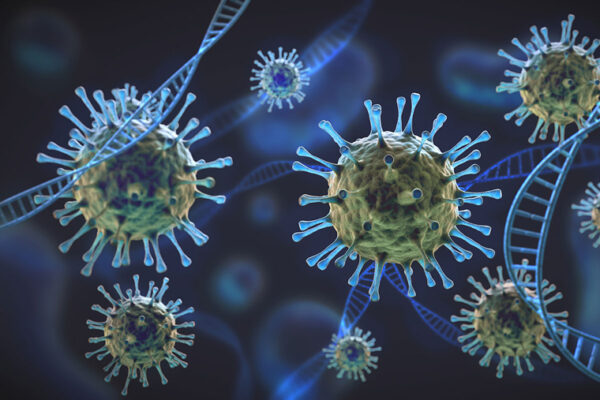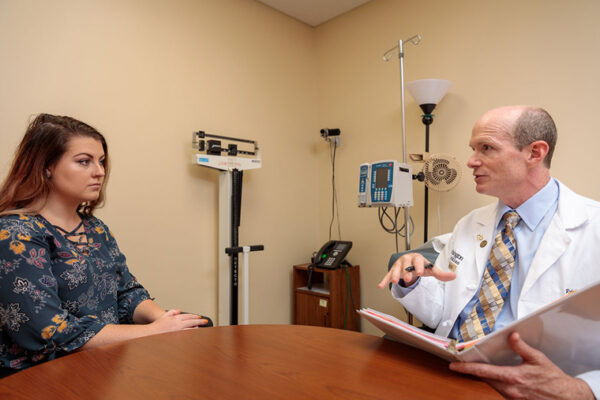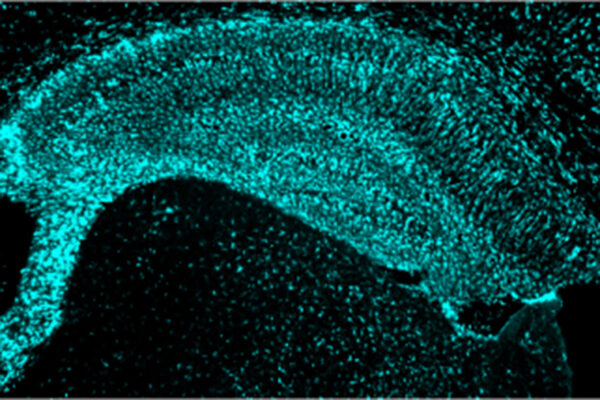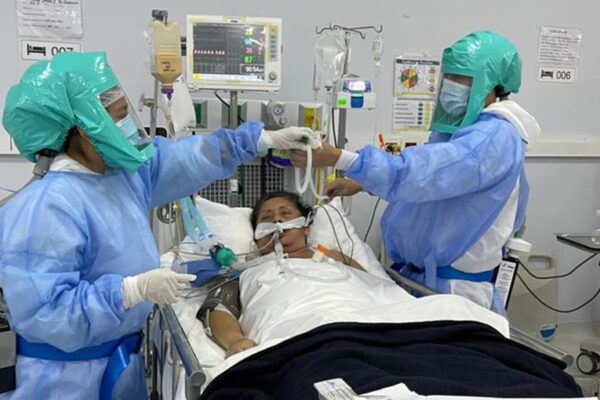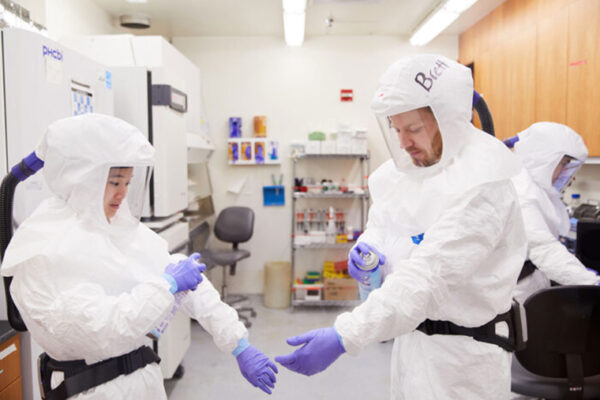Virus that causes COVID-19 can find alternate route to infect cells
The virus that causes COVID-19 normally gets inside cells by attaching to a protein called ACE2. School of Medicine researchers have found that a single mutation confers the ability to enter cells through another route.
New snack foods nurture healthy gut microbiome
Researchers at the School of Medicine have identified ingredients for snack food prototypes that have been formulated to deliberately change the gut microbiome in ways that can be linked to health.
Investigational Alzheimer’s drug improves biomarkers of the disease
An investigational Alzheimer’s drug showed mixed results, reducing molecular markers of disease and curbing neurodegeneration, without demonstrating evidence of cognitive benefit, in a clinical trial led by School of Medicine researchers.
Protein linked to heart health, disease a potential therapeutic target for dementia
Researchers at Washington University School of Medicine have found that high levels of a normal protein associated with reduced heart disease also protect against Alzheimer’s-like damage in mice, opening up new approaches to slowing or stopping brain damage and cognitive decline in people with Alzheimer’s.
Lang named to national child health advisory council
Catherine Lang, professor of physical therapy at the School of Medicine, has been appointed to serve on a national child health council for the Eunice Kennedy Schriver National Institute of Child Health and Human Development of the National Institutes of Health (NIH).
The COVID-19 vaccines are a scientific breakthrough. But are they enough?
COVID-19 vaccines rolled out on an unprecedented timetable, but the world is still at risk.
Saving front-line workers
In the early days of the pandemic, personal protective equipment was in short supply in the U.S., and its availability continues to be a problem globally, leaving health-care workers and their communities exposed. Jennifer DeLaney, MD ’97, has been on a remarkable journey leading a local effort to help.
COVID-19 dual-antibody therapies effective against variants in animal study
New research at Washington University School of Medicine suggests that many COVID-19 therapies made from combinations of two antibodies are effective against a wide range of variants of the virus.
Bergom honored by Radiation Research Society
Carmen R. Bergom, MD, PhD, associate professor of radiation oncology at the School of Medicine, will receive the 2021 Michael Fry Research Award from the Radiation Research Society. The annual award recognizes a junior scientist who has made extraordinary contributions to the field of radiation research.
Iannotti speaks during UN nutrition event
Lora Iannotti, associate professor at the Brown School and an expert on maternal and child nutrition, spoke during a panel discussion in June about the launch of the UN Nutrition discussion paper on livestock-derived foods and sustainable healthy diets.
Older Stories
